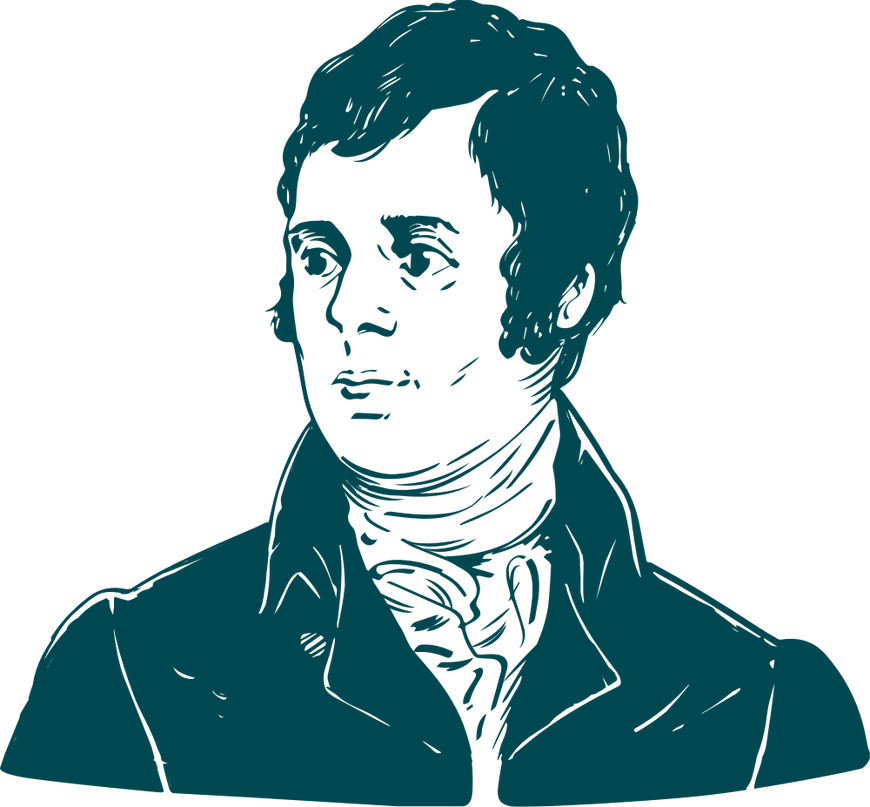- Home
- Collections
- Robert Burns Collection
- Burns the man
Burns the man
A passion for books, music, nature and women shaped Robert Burns as a person and a poet.

Burns was an innovator and a contrarian. He thought differently, did not conform to his ‘place’ in society and expressed ideas that caught people off balance. His writing often brought him into conflict with the establishment; many of his poems take issue with the hypocrisy and double standards of Kirk [Church] ministers.
In an age when only a few privileged men could vote, Burns used his pen to make his voice heard. He strongly believed in equality and independence of people and ideas. The American and French Revolutions both happened in his lifetime – inspired by these struggles, he wrote some of his most powerful works. In his most famous political song, ‘A man’s a man for a’ that’, he speaks up for the common man and attacks social injustice.
And yet, there are contradictions in his character and behaviour. In 1786, Burns accepted (but did not take up) a job in Jamaica, overseeing a plantation worked by enslaved people. A few years later, in order to support his wife and growing family, he opted for the unpopular job of an Exciseman. Excisemen were required to ensure that makers of whisky and beer were paying the correct amount of tax.
There are many myths associated with Burns’s life. Over the years, people have blamed Burns’s early death on numerous causes – including alcoholism, sexually transmitted disease, lead poisoning and tuberculosis. Recent medical research has disproved these theories, and experts now believe Burns died from endocarditis (an inflammation of the lining of the heart). This is a known complication of rheumatic fever, which Burns contracted as a young man when he was farming.
Throughout his life, Burns’s livelihood and creative inspiration depended on his close and constant connection with the land around him. This inspired the enduring image of Robert Burns, the ‘Ploughman Poet’. In nature’s smallest details and tiniest inhabitants, he often discovered profound spiritual, philosophical and social lessons for people. He also used vivid descriptions of nature to heighten the emotional impact of a poem or song. His lifelong love of music inspired him to travel around Scotland, collecting, writing down and editing songs and tunes – he saved hundreds that might otherwise have been lost from our cultural heritage.
Highlight collection items
Find out more from our guest writers
Explore more themes in our collection
Myths and folklore
Burns intertwined much of his work with Scotland’s traditions and folklore. His poems often reflect themes from events deeply rooted in Scottish cultural history.
Relationships
Poetry and love went together for Burns. He wrote poems, songs and letters to more than 200 people, from lovers and good friends to eminent professors and titled earls.
Memorialisation and legacy
Burns’s popularity, not only in Scotland but across the world, is extraordinary – his characteristic ability to express an idea in just a few lines or words has inspired many people.